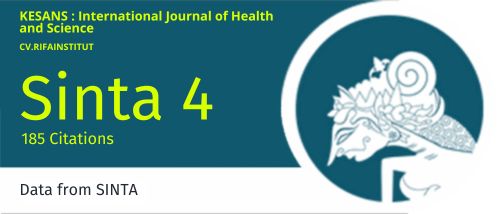Case Report: Training Emotion Regulation and Behavioral Modification in Children with Intellectual Disability
DOI:
https://doi.org/10.54543/kesans.v4i11.423Keywords:
Intellectual Disability, Emotion Regulation, Agression, Behavioral Modification, PsychotherapyAbstract
Introduction: Children with intellectual disabilities often exhibit challenging behaviors, including aggression, due to difficulties in emotional regulation and communication. These behaviors can significantly impair social functioning and require targeted interventions. Objective: This study aimed to reduce aggressive behaviors in a 7-year-old child with mild intellectual disability through a structured intervention combining emotion regulation training and behavior modification techniques. Method: The intervention included psychoeducation for the parent, emotion recognition and regulation sessions using visual aids and interactive videos, and a token economy system to reinforce positive behaviors. The child’s progress was monitored through behavioral observations and parental reports over multiple sessions. Result and Discussion: The intervention resulted in a 93% reduction in aggressive behaviors, decreasing from seven incidents per day to fewer than one. Improvements were also noted in the child’s ability to identify and express emotions appropriately. The parent successfully implemented the token economy system, contributing to sustained behavioral changes. Conclusion: The findings demonstrate integration of emotion regulation strategies, caregiver training, and token economy can effectively manage aggression in children with intellectual disabilities.
Downloads
Published
How to Cite
Issue
Section
Citation Check
License
Copyright (c) 2025 Latieva Sonia Salmany, Ilham Nur Alfian

This work is licensed under a Creative Commons Attribution-ShareAlike 4.0 International License.





















